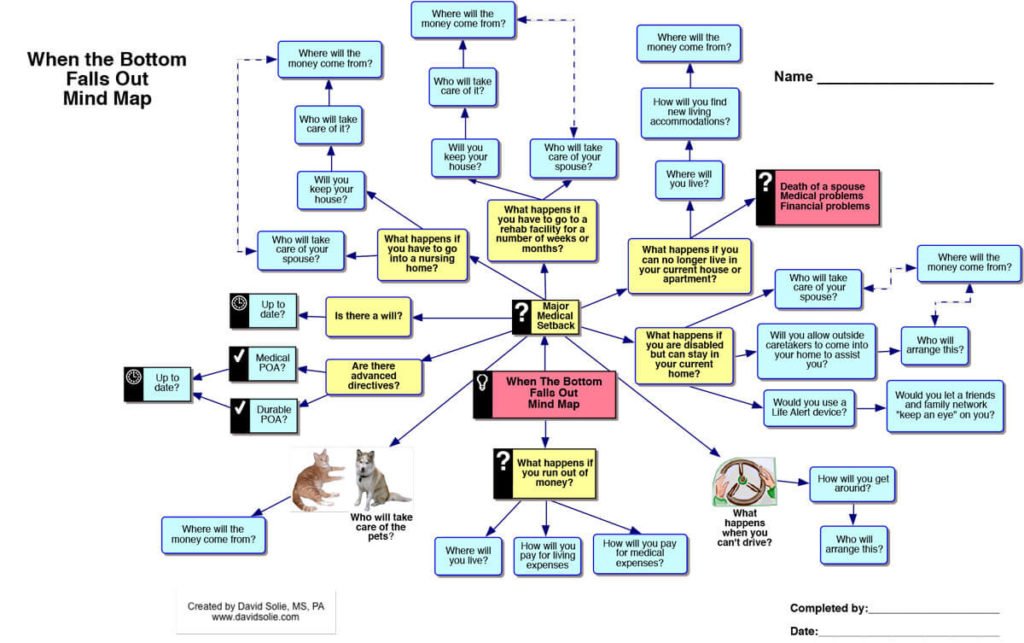6 Tips for Talking to Your Parents About Senior Care with David Solie

David Solie is the author of How To Say It To Seniors: Closing the Communication Gap with Our Elders and a thought leader in geriatric and intergenerational communication.
Being a caregiver for aging loved ones is an incredibly challenging role, and it can be difficult to know where to start or how to talk to senior parents about tough choices.
David Solie was also a caregiver for his parents, so he gets it.
He knows how hard it can be to have an honest conversation about senior care decisions with a parent or older relative.
He knows the question that’s on almost every adult child’s mind when entering this life stage or journey into caregiving: “How do we balance respecting our parents’ need for control with our desire to keep them safe?”
He also understands the difficult family dynamics that can make these conversations both emotionally charged and highly volatile.
In this exclusive interview, Solie offers his expert advice on navigating the rough waters of senior care conversations with our aging parents and relatives — and why hone sty, transparency and trust are the foundation of how to talk to senior parents.
sty, transparency and trust are the foundation of how to talk to senior parents.
 1. Plant the seeds.
1. Plant the seeds.
The first conversation with a parent or relative about senior care should plant the seeds for deeper exploration later on about concerns, preferences, and priorities.
Each time you talk to senior parents, remind the older adult that you’re “part of the control preservation team,” per Solie. Be confident in your partnership, and assure them often of your loyalty by using phrases like, “I understand this is difficult. I want you to have choices. I support your independence.”
From this vantage point, you can more easily shift to a conversation about your concerns, says Solie. Start by saying, “These are the things I’m concerned about. It seems like some things are out of control. Am I seeing that right?”
 2. Trust the process.
2. Trust the process.
If you’re expecting a one-and-done discussion with your parent or relative about your concerns and/or proposed plan, you’ll need to adjust your expectations. This process should be a series of honest conversations with both parties actively engaged. “Adult children cannot go in and push,” says Solie.
Don’t be surprised if you run into resistance from your loved one; this often stems from a fear of loss rooted deep in an older adult’s psyche, Solie explains. “They’re going to be very defensive and on guard because of it. They’re thinking, ‘What’s going to be taken away? What’s the real game here?’”
To overcome this fear, it’s important to ease into these conversations, even if that means stopping for breaks — be it for 5 minutes or 5 days. Trusting in each other and in the process is essential to how to talk to senior parents.
 3. Put control on the table.
3. Put control on the table.
Your parent or loved one isn’t the only one experiencing fears about these conversations and the uncertain road ahead — you probably are too. It’s important to come to the table with a recognition of these emotions. Be ready to demonstrate your loyalty and a commitment to finding the best solution together.
Start the conversation with transparency. “Put control on the table and be very clear that you want to work together, and that you support their independence and ability to choose,” Solie says. Try to avoid controlling the pace of the conversations or pushing your agenda — even as you’re smiling and saying, “I’m giving you a choice.”
 4. Find out what’s important – what matters.
4. Find out what’s important – what matters.
Your parent will want to see if your behavior supports your actions. If you’re forging ahead and setting up virtual tours at local assisted living communities when your last conversation was about exploring in-home care first, your parent will naturally feel betrayed.
To match your words to your actions, Solie recommends finding language that resonates with your parent’s past, their fears, and their experiences. How do you accomplish this? Ask questions — and don’t assume you know the answers.
Maybe you’re concerned that your mother won’t make any friends at assisted living because she’s a private person. But a conversation leading with her feelings on the transition may reveal her loneliness at home and an eagerness to socialize with peers in a community setting.
Find out what’s important and what matters to them in this stage of life, and lead with that. Say something like, “Mom, I think these things are important to you: is that true?” Keeping your parent’s priorities and preferences first will show you’re committed to a partnership, not just pushing your plan or thinking you know best.
 5. Write a new story.
5. Write a new story.
In previous generations, family units often mobilized around the oldest individual after he or she experienced the loss of a spouse or a life-changing health event. But that’s changed. Today’s families are often scattered across states and sometimes countries, juggling a number of personal and professional obligations. Some adult children may even have complex care needs of their own.
That’s a big part of what makes the question of how to talk to senior parents so difficult — and why your parent ultimately fears being alone, or abandoned, or losing autonomy. There’s no road map for what comes next; you’re creating it as you go. That sense of responsibility and uncertainty can be overwhelming.
Throughout this process, you are writing a new narrative — and each family will approach things differently because the individuals involved have had different life experiences. You may find this process strengthens your relationship, or restores a strained one. Take time to enjoy the gift of knowing your parent better through this process, and discovering the best outcome together.
 6. Map it out.
6. Map it out.
As Solie suggests, talking to senior parents should be “more dancing, less wrestling.” To that end, Solie’s blog offers a variety of resources and tools for how to talk to senior parents by dancing through these conversations, including his Caregiving Mind Maps, which he created out of his experiences in his own family and with various clients.

Overwhelmed by this map? That’s understandable. But Solie believes it accurately reflects the enormity and complexity of the caregiving decision-making process, and it’s a visual reminder of why we need to be patient, compassionate, thorough, and practical as we work through each stage of this process with an older loved one.
It’s also a reminder that, for the best possible partnership in this process, trust and transparency matters.
To recap, here are Solie’s recommendations:
- Plant the seeds for future conversations
- Trust the process to unfold at its own pace
- Share control with your loved one
- Find out what matters in your search
- Write a new story for your family
- Map out the best options
Stay tuned for more from David Solie, and for featured interviews with other renowned industry experts at Open Conversations.
If you’re just starting this journey, consider taking this 5-minute survey to assess your situation and determine whether it’s the right time for senior living for you or your loved one.


